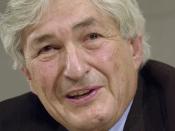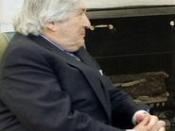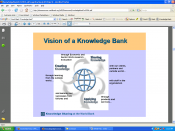�PAGE �3� �PAGE �3� Hypothesis Identification Article Analysis
Running Head: HYPOTHESIS IDENTIFICATION ARTICLE ANALYSIS
Hypothesis Identification Article Analysis: What the World Bank Knows
⦠And What It Only Thinks It Knows
The term hypothesis refers to "the suggested explanation of a phenomenon or reasoned proposal suggesting a possible correlation between multiple phenomena" (Wikipedia Online Encyclopedia, 2007). It is generally based on previous observations, and to be scientific, it is tested for falsification. Customarily it undergoes the process of hypothetico-deductive method on falsifying the hypothesis. By adding the criterion of falsification, an observation that would disprove the proposition as false should be possible even at least in principle. Through this, a falsifiable hypothesis simplifies the process of determining the instances that will make the hypothesis false.
Citing as a good reference for the discussion will be The Economist (2007) article entitled, "What the World Bank Knows â¦And What It Only Thinks It Knows."
In essence, the document seeks to evaluate the proposition of knowledge sharing initiated by the former World Bank President James Wolfensohn. Though further than, the paper also tackles the need to materialize a formal knowledge sharing and the development it currently goes through.
Thus, simply stated, the hypothesis conferred in the article is the conceptualization of "Knowledge Bank" to minimize, if not eradicate, poverty particularly in poor countries. Excerpts from the 1996 address delivered by Wolfensohn, he asserts that,
"We [World Bank] have been in the business of researching and disseminating the lessons of development for a long time. But the revolution in information technology increases the potential value of these efforts by vastly extending their reach. To capture this potential, we need to invest in the necessary systems, in Washington and worldwide, that will enhance our ability to gather development information and experience, and share it with...


